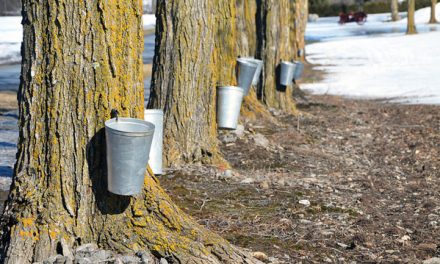SDSG – Some relief from increasing input costs, unpredictable weather and a sometimes-volatile global market may be on the way for Ontario farmers, if the final stages of Bill C 234 have a happy ending.
The Bill has made it through the House of Commons and is currently being looked at in the Senate.
The vote to send Bill C264 to its next stage was 176 for and 145 against.
Bill C234 was introduced by MP Ben Lobb (Huron-Bruce). The legislation98\mends the Greenhouse Gas Pollution Pricing Act, to extend the exemption for qualifying farming fuel to include marketable natural gas and propane was proposed. Once passed, Bill C-234 would provide an overall exemption for farming practices using natural gas and propane as part of the irrigation process, grain drying, feed preparation and heating or cooling of barns, greenhouses, and other agricultural growing structures.
Currently, as Bill C234 now exists, rebates do not address the number of carbon surcharges applied to farms.
Stormont, Dundas, South Glengarry MP Eric Duncan was happy with the process, and purpose of the Bill. He said, “After several years and several attempts, it is great to see our Conservative Bill to exempt the carbon tax from natural gas and propane used on farms has passed the House of Commons and is now in the Senate. We are hoping the Senate will recognize the broad, bi-partisan support for this legislation and pass it into law swiftly. This is long past due. Not only will C-234 help farmers with their costs but will lower the price of food for consumers.”
The Agriculture Carbon Alliance (ACA) has been championing the Bill and in a press release said, “We appreciate MP Ben Lobb for sponsoring the bill and for his leadership in making this happen. ACA is now calling on all Senators to also show their support for farmers by ensuring Bill C-234’s swift passage into law. The proposed legislation will deliver critical financial relief for farmers, growers, and ranchers across the agricultural sector.”
Co-chair of ACA, Dave Carey said, “As Canadian farmers face rising production costs, the passage of Bill C-234 is crucial to providing much-needed financial support.”
Carey said the legislation, if passed, would help the farming industry maintain the resources they need to remain innovative and sustainable with on farm practices and at the same time help ensure the stability of the country’s food supply.
In an ACA statement about the Bill arriving in the Senate he said, “The passage of Bill C-234 will support our farmers and remove the burden of carbon pricing from necessary farm activities that lack viable fuel alternatives. This exemption will unleash the full potential of our farmers, growers, and ranchers, enabling them to make investments that help secure a sustainable future for all.”
Keith Currie the president of the Canadian Federation of Agriculture in a statement about Bill C234 said, “As farmers often have no viable fuel alternatives for critical food production activities, the carbon tax creates a large financial burden without any potential for significant emission reductions. For farmers to make investments into technologies that enhance their efficiency and sustainability, they need access to the working capital. Bill C-234 would keep those funds in farmers’ hands and allow them to make the necessary investments that will allow our sector to unleash its potential as a natural climate solutions’ provider.”
Rick Bergmann, chair of Canadian Pork Council said, “Having barn heating costs subject to the carbon price is especially challenging for producers given that they are responsible for the welfare of their animals. In Canada’s climate, producers have no choice but to manage the temperatures in barns to ensure the care of our animals.”
Andre Harpe, chair of Grain Growers of Canada like his counterparts in the agriculture industry, felt Bill C234 was a positive piece of legislation for farmers.
He said, “Canada’s grain farmers welcome the introduction of this bill and appreciate the exemptions included for critical on-farm activities – including grain drying. Through this relief from the carbon tax, our farmer members would have additional capital to invest in innovative technologies and sustainable practices that reduce emissions.”
The ACA is a national coalition of 15 farm organizations committed to meaningful and collaborative dialogue with the federal government around carbon pricing. Its membership encompasses all major agriculture commodities and represents 190,000 farm businesses that steward 62 million hectares. Canada’s farmers are the heart of our agri-food value chain, which contributes $135 billion annually and provides one in nine Canadian jobs.
Its members include Canadian Canola Growers Association, Canadian Federation of Agriculture, Canadian Cattle Association, Grain Growers of Canada, Canadian Pork Council, Chicken Farmers of Canada, Turkey Farmers of Canada, Fruit and Vegetable Growers of Canada, Canadian Hatching Egg Producers, Canadian Forage and Grassland Association, the National Sheep Network, National Cattle Feeders’ Association, Dairy Farmers of Canada, Canadian Seed Growers’ Association, and Mushrooms Canada.












